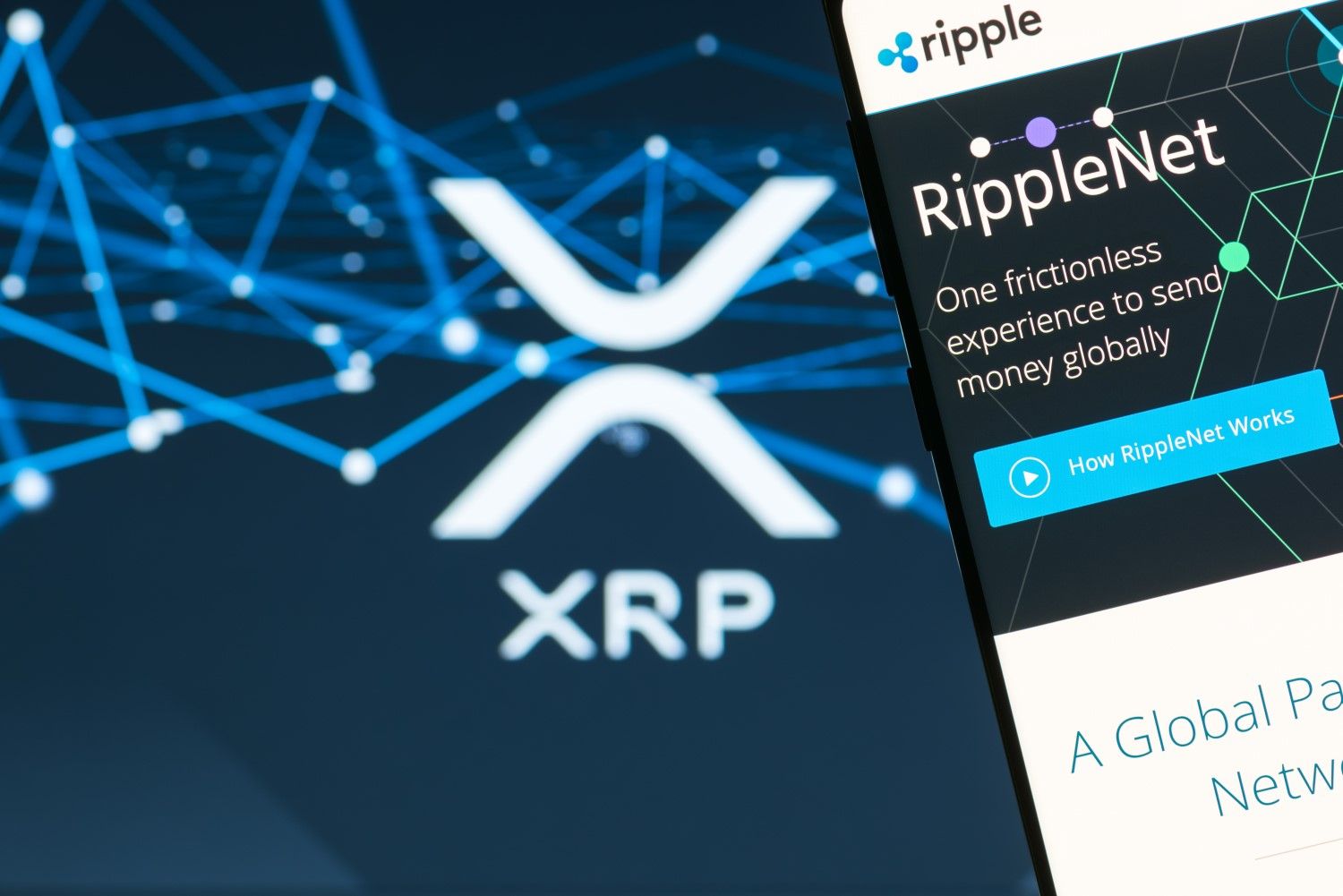It isn’t often that I ride a chair lift to dinner, but last week I found myself carried up the slopes of St Moritz toward a meal with some of the most influential players in crypto.
It was a windless, crystalline evening at this fabled destination in the Swiss Alps. As I disembarked from the lift and made the hike toward a distant light I wasn’t alone. Dozens of fellow speakers at the CfC St Moritz cryptocurrency conference were also traversing the cat track toward the Paradiso club, a luxe chalet perched below the 10,000 foot summit of Piz Nair. A steak dinner awaited, as well as an invaluable read on the state of decentralized finance.
Lost in the Wreckage
Ever since FTX cratered, I’ve been mulling questions about crypto’s annus horribilis: Was the promise of this breakthrough technology lost in the wreckage of FTX, Terra, Celsius, and other failures? Was decentralized finance just a mirage? And were investors largely finished with the asset class, especially with such juicy valuations on offer in the less risky equities markets?

My hope was to garner answers to these questions in the rarefied air of St. Moritz. And I wasn’t disappointed. The CfC has long been a Davos-like stop on the global crypto conference circuit, drawing a mix of serious folk from diverse disciplines. This year was no different with attendees hailing from leading DeFi protocols, Wall Street, Switzerland’s Crypto Valley, Sand Hill Road, and far-flung outposts in Bermuda and Perth, Australia.
Holding Court
Entering the chalet with a cup of warm, mulled wine in my hands, I spied none other than Changpeng Zhao, aka CZ, holding court. With questions swirling about the soundness of Binance, it was striking to see a man said to be worth $13B showing colleagues a video of himself ably carving powder on a nearby slope earlier in the week.
Turning to more serious matters, CZ told me he was unperturbed about reports that withdrawals were soaring from the No. 1 global crypto exchange, which he founded and leads as CEO. He said Binance has not indulged in the leverage and lending that poleaxed FTX or Celsius.
DeFi Heavyweights Curve and Aave Surge As Crypto Rally Stalls
LDO Tanks After Jump Crypto Sells Tokens
Maybe so, but throughout the week concerns percolated among the CfC attendees that a shoe may yet drop at Binance, a complex organization with operations in dozens of nations that has purposefully not designated a home base nor named a board of directors. (In September, the Binance group introduced an advisory board led by former Sen. Max Baucus, Democrat of Montana.)
In his fireside chat on Wednesday, CZ sought to allay worries about Binance’s regulatory vulnerabilities but also make the case the exchange was a new type of business model that shouldn’t be held to traditional expectations. He sees Binance as “the bridge” between crypto and TradFi.
“I am a decentralization advocate and I want people to have power to control wealth and use financial tools,” he said. “At the same time, we are in a transition phase of this industry and we have to integrate with banks and get licenses.”
Taking a more conciliatory tone on regulation wasn’t all that surprising given what happened last year. Yet investors, especially those from deep pocketed institutions such as hedge funds, foundations, and family offices, want more than lip service. Words are cheap, and many of the attendees are done with the legerdemain of the CeFi cowboys.
Speaking about this risk at CfC, Philippe Bekhazi, the head of XBTO Group, a digital assets trading firm, reminded his audience that depositing on centralized exchanges is akin to lending them money at 0%. With so much opacity, CEX’s can do whatever they want with customers’ capital, for free.
First Step
While proof-of-reserves disclosures may be a great first step and on-chain assets may reassure customers their deposits are safe, that’s only half the story. “The problem is the liability side of the equation,” Bekhazi said. “There’s a lot of shadow leverage out there.”
One of the advantages of DeFi protocols, he added, is that you can see the liability side of the equation and even the decision making on how assets will be managed. While DeFi may have escaped 2022 with better headlines than CeFi, the sector has its own problems. For starters, there’s the sense that DeFi isn’t going anywhere without TradFi.
Reality Checks
It’s worth remembering that DeFi was originally driven by the idea that Ethereum would foment an alternative financial system liberated from the bloat, friction, and restrictions of the old world. Now, several years and many reality checks later, it’s becoming clear that DeFi may be less a revolution in its own right and more a mammoth IT upgrade for the entire finance industry. Changing up infrastructure may sound like dull stuff, but the folks at CfC were pretty excited about the growth prospects of cross-pollinating DeFi and TradFi.
Rocket Pool Bets Coinbase Deal Will Help it Catch Lido
Liquidity Staking Race Ratchets Up as Rocket Pool Members Size Up Latest Move
Consider real-world assets, or RWAs, as they’re known. Tokenizing bonds, stocks, and other traditional securities is picking up a lot of mojo. Societe Generale, France’s No. 3 bank, has become a big believer in the stratagem, and last week Ondo Finance, a crypto trading platform, brought out a tokenized version of BlackRock’s Treasuries ETF. JPMorgan Chase’s Onyx project has also been experimenting with DeFi trades.
DeFi founders are racing to embrace RWAs. Stani Kulechov, the founder and CEO of Aave, proudly took the stage for a DeFi panel wearing a T-shirt that said “I’m a real-world asset.” Aave, a decentralized lender with $3.7B in total value locked, has been laboring on Aave Arc, a new service that is tailored for institutional investors by offering a permissioned protocol with know-your-customer and anti-money laundering checks. Kulechov said RWAs will undoubtedly be an important source of growth for the sector.
Shadow of FTX
Still, the shadow of FTX loomed during the three days of the confab. In one of the most intriguing panel discussions at CfC, Anthony Scaramucci, the founder and managing partner at the investment firm SkyBridge Capital, shared the fury he felt upon learning that Sam Bankman-Fried had allegedly defrauded investors. Scaramucci, the impresario behind the famed SALT investment conferences, is one of the most connected financiers on Wall Street. He not only introduced SBF to many of his high-powered contacts, he also reportedly sold FTX a 30% stake in SkyBridge.

Needless to say, he was mortified when the exchange went belly up. “It was a diabolical violation of trust,” Scaramucci said. “But I am not going to have someone like Sam color the rest of my life. I expect to make risk-adjusted investment in the future.”
For all the fire and brimstone of 2022, it was a sentiment many investors at CfC shared — crypto may be replete with bad actors, but the innovation story remains unchanged. And big capital is moving in regardless of past calamities. Christine Moy, the head of digital assets at Apollo Global Management, the private equity giant, said the tokenization of alternative assets and private funds is just getting started.
And Apollo, which manages more than $500B and runs a massive yield business, plans to invest in what she calls new “tech rails to automate capital deployment.”
In other words, crypto essentially remains an enterprise software story. While that may not be the sexiest thing in the world, it’s a proposition that continues to draw confidence even as the token market itself does not.
Read More: news.google.com









 Bitcoin
Bitcoin  Ethereum
Ethereum  XRP
XRP  Tether
Tether  Solana
Solana  Dogecoin
Dogecoin  Cardano
Cardano  USDC
USDC  Lido Staked Ether
Lido Staked Ether  Avalanche
Avalanche  TRON
TRON  Shiba Inu
Shiba Inu  Toncoin
Toncoin  Stellar
Stellar  Wrapped stETH
Wrapped stETH  Polkadot
Polkadot  Wrapped Bitcoin
Wrapped Bitcoin  Chainlink
Chainlink  WETH
WETH  Bitcoin Cash
Bitcoin Cash  Sui
Sui  Hedera
Hedera  Litecoin
Litecoin  Pepe
Pepe  NEAR Protocol
NEAR Protocol  LEO Token
LEO Token  Uniswap
Uniswap  Wrapped eETH
Wrapped eETH  Aptos
Aptos  Internet Computer
Internet Computer  USDS
USDS  Cronos
Cronos  Ethereum Classic
Ethereum Classic  POL (ex-MATIC)
POL (ex-MATIC)  Artificial Superintelligence Alliance
Artificial Superintelligence Alliance  Ethena USDe
Ethena USDe  Bittensor
Bittensor  Render
Render  Filecoin
Filecoin  Algorand
Algorand  Arbitrum
Arbitrum  Dai
Dai  Cosmos Hub
Cosmos Hub  Stacks
Stacks  Immutable
Immutable  WhiteBIT Coin
WhiteBIT Coin  Celestia
Celestia